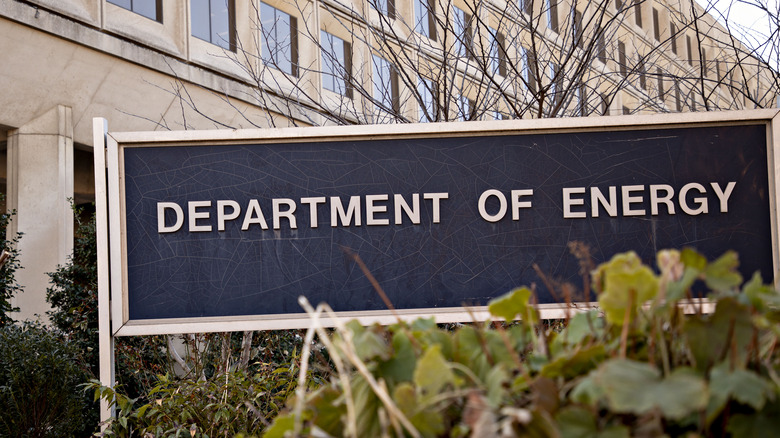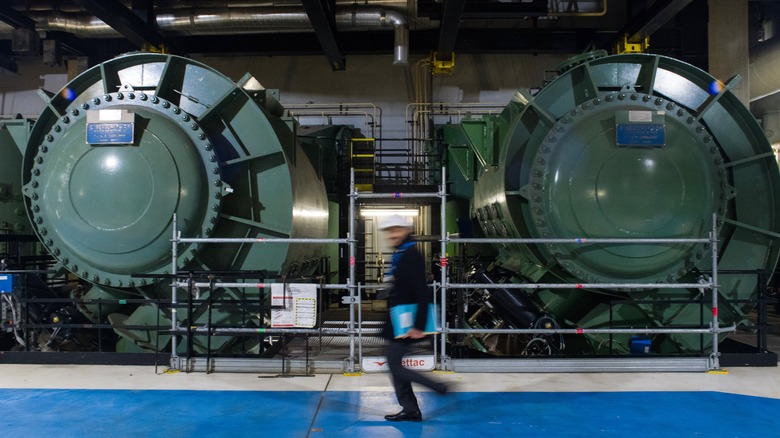This Fusion Energy Breakthrough Could Be The Key To Near Unlimited Energy
A major development in the U.S. Department of Energy's endeavor to produce unlimited power is expected to be announced tomorrow, December 13. According to a report in The Washington Post, DOE scientists have finally completed a nuclear fusion reaction that produced more energy than it required. News of the breakthrough was confirmed by two anonymous sources associated with the research, but The Washington Post reported that researchers are still finalizing the results and official announcements are not yet available.
David Edelman, a policy and global affairs executive at the private fusion company TAE Technologies, told The Washington Post that the landmark achievement is "very important" on the journey to usable nuclear fusion energy. But the celebration of this milestone will undoubtedly be brief, as a long road to the holy grail of clean energy lies ahead. For one, technology to convert that nuclear reaction to electricity for use on the commercial power grid has not yet been developed. There's the astounding amount of resources needed to instigate even one single occurrence of the reaction as well — including the employment of one of the world's biggest lasers, says The Washington Post. The equipment necessary for creating fusion power, which is already extremely laborious to source materials for and produce, undergoes exorbitant amount of stress during the reaction — so chances of it being destroyed during use are high.
This development took decades of research and billions of dollars
The nuclear fusion energy endeavor first began in the 1950s shortly after the Geneva Convention, and in the seven decades that have passed, billions were invested in research and development — from both public and private sector investment sources. It will be at least a decade or so more before that energy powers ours homes, The Washington Post says. Nuclear fusion energy will be considered successful when it requires less resources than other renewable energy sources like wind and solar power do — and when it powers the grid with no radioactive waste or carbon footprint.
This field is slated to receive several billions more in federal subsidies through substantial climate change legislation from the Biden administration, per The Washington Post. The United States is just one of many nations investing into the lofty goal, including Russia, Japan, and the European Union, per the World Nuclear Association, meaning research into nuclear fusion is underway worldwide.

